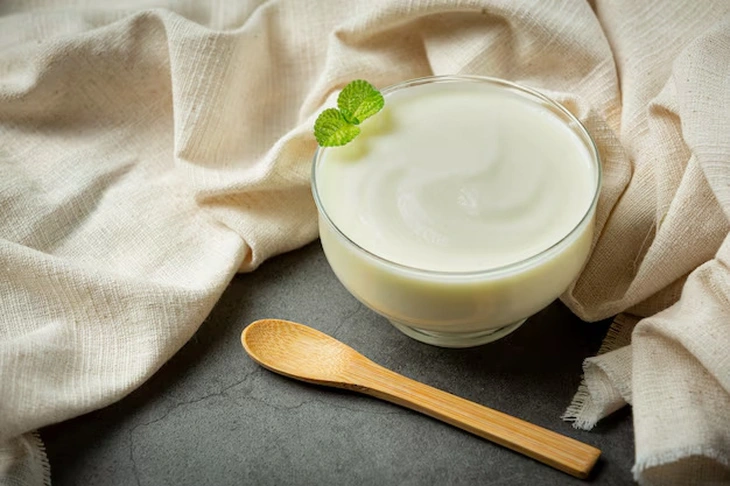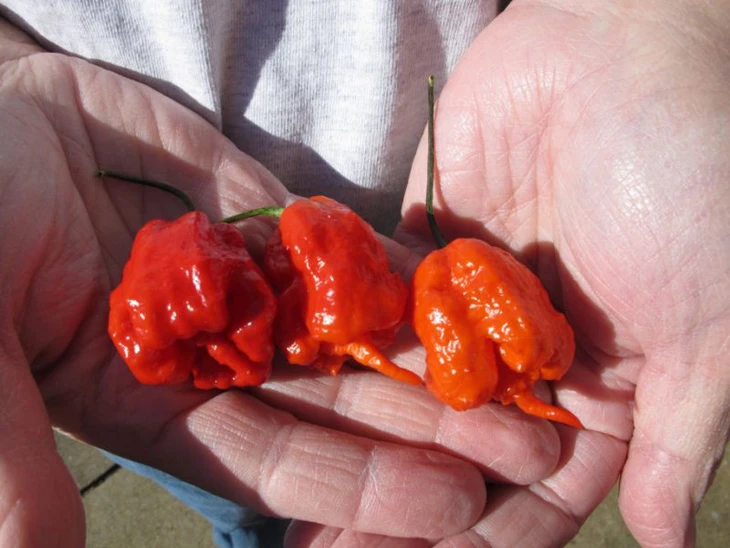
Yogurt, a glass of milk or some fruit are good suggestions for a late-day snack - Illustration photo
Because this can lead to weight gain, stomach upset and affect sleep.
Is snacking at night bad for your health?
According to a Health.com post, while there isn’t much specific research, studies have shown that snacking at night is an unhealthy eating habit. One review found that people who eat at night tend to eat more calories and less healthy foods like sweets, sugary drinks, and fast food.
They also tend to skip or delay breakfast, eating more later in the day. Even when eating the same amount of calories, people who eat more at night are more likely to be overweight and have metabolic health problems.
Not eating enough during the day can lead to unhealthy snacking at night. Being tired also makes it harder to make conscious food choices. You may choose anything that is quick and satisfying, like sugary or fatty foods.
Some people snack at night to cope with stress, boredom, or sadness. Emotional eating is linked to anxiety, depression, weight gain, and unhealthy eating habits.
If this is a problem you experience regularly, talking to a health professional or psychotherapist may be helpful.
On the other hand, late-night snacking can absolutely be a healthy part of your routine if you plan ahead and make conscious choices.
Foods to eat before bed
According to experts, tryptophan is an amino acid needed to produce melatonin and serotonin - two hormones that control sleep. Foods rich in tryptophan include cheese, egg whites, milk, peanuts and nuts.
Combine protein-rich foods with carbohydrates so tryptophan can reach the brain more easily.
Fiber and protein can help keep you fuller longer, preventing hunger pangs at night. These nutrients also help keep blood sugar levels stable, avoiding spikes and drops that can disrupt sleep.
Research shows that diets rich in fiber from plants (fruits and vegetables) and healthy fats from nuts are linked to better sleep quality.
Combining food groups is a great way to ensure your late-night snack is balanced and satisfying without being too heavy. Here are a few evening snack options:
A glass of milk and fruit like banana, apple or pear.
Yogurt with berries.
Boiled eggs with whole wheat crackers.
Whole wheat bread with peanut butter or cheese slices.

Foods with lots of chili, lots of fat, sour foods... can affect sleep - Illustration photo
Foods you should not eat before going to bed
There are foods that can make it harder for you to fall asleep or interfere with your sleep. Here are a few foods to avoid before bed:
- Foods and drinks containing caffeine: Caffeine can keep you awake and make it difficult to sleep.
- Spicy and greasy foods: These can cause heartburn, a burning sensation in the chest or throat.
- Acidic foods such as tomatoes and citrus fruits: Can also trigger heartburn.
- Sweets and sugary drinks like desserts and soda: Diets high in sugar have been linked to poor sleep.
- Salty foods: Can cause dehydration and feeling tired in the morning.
- Alcohol: Is a sleep disruptor; although it can help you fall asleep faster, it makes you wake up easily and causes poor sleep quality.
However, there is no need to be rigid, occasionally eating one of these foods will not harm your health. If you are concerned about your health and sleep, review your nighttime snacks and consider cutting back on these foods.
Remember to control your portions. Eating too much right before bed can cause discomfort, making it difficult for your body to relax and sleep well.
When should you stop eating before bed?
The best time to stop eating is about 2-3 hours before you plan to go to bed. This allows your body to fully digest the food, which helps prevent discomfort, gas, and sleep disruption.
For example, if you go to bed at 10pm, try to stop eating around 7pm or 8pm.
When snacking at night, snacks rich in fiber, protein, and healthy fats can promote better sleep and help prevent overeating.
Paying attention to portion sizes and understanding whether you are truly hungry or just eating out of habit or emotion can make a big difference. If nighttime cravings are a regular problem, adjusting your daytime eating habits, staying hydrated, and engaging in relaxing activities before bed can help.
Source: https://tuoitre.vn/bua-an-muon-nhat-trong-ngay-nen-la-gio-nao-20250425082911608.htm


![[Photo] National Assembly Chairman Tran Thanh Man holds talks with Speaker of the Malaysian House of Representatives](https://vphoto.vietnam.vn/thumb/1200x675/vietnam/resource/IMAGE/2025/9/19/5cb954e3276c4c1587968acb4999262e)
![[Photo] Secret Garden will appear in Nhan Dan Newspaper's Good Morning Vietnam 2025 project](https://vphoto.vietnam.vn/thumb/1200x675/vietnam/resource/IMAGE/2025/9/19/cec307f0cfdd4836b1b36954efe35a79)
![[Photo] Spreading Vietnamese culture to Russian children](https://vphoto.vietnam.vn/thumb/1200x675/vietnam/resource/IMAGE/2025/9/19/0c3a3a23fc544b9c9b67f4e243f1e165)

![[Photo] Sea turtle midwives](https://vphoto.vietnam.vn/thumb/1200x675/vietnam/resource/IMAGE/2025/9/19/9547200fdcea40bca323e59652c1d07e)
























































































Comment (0)